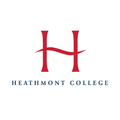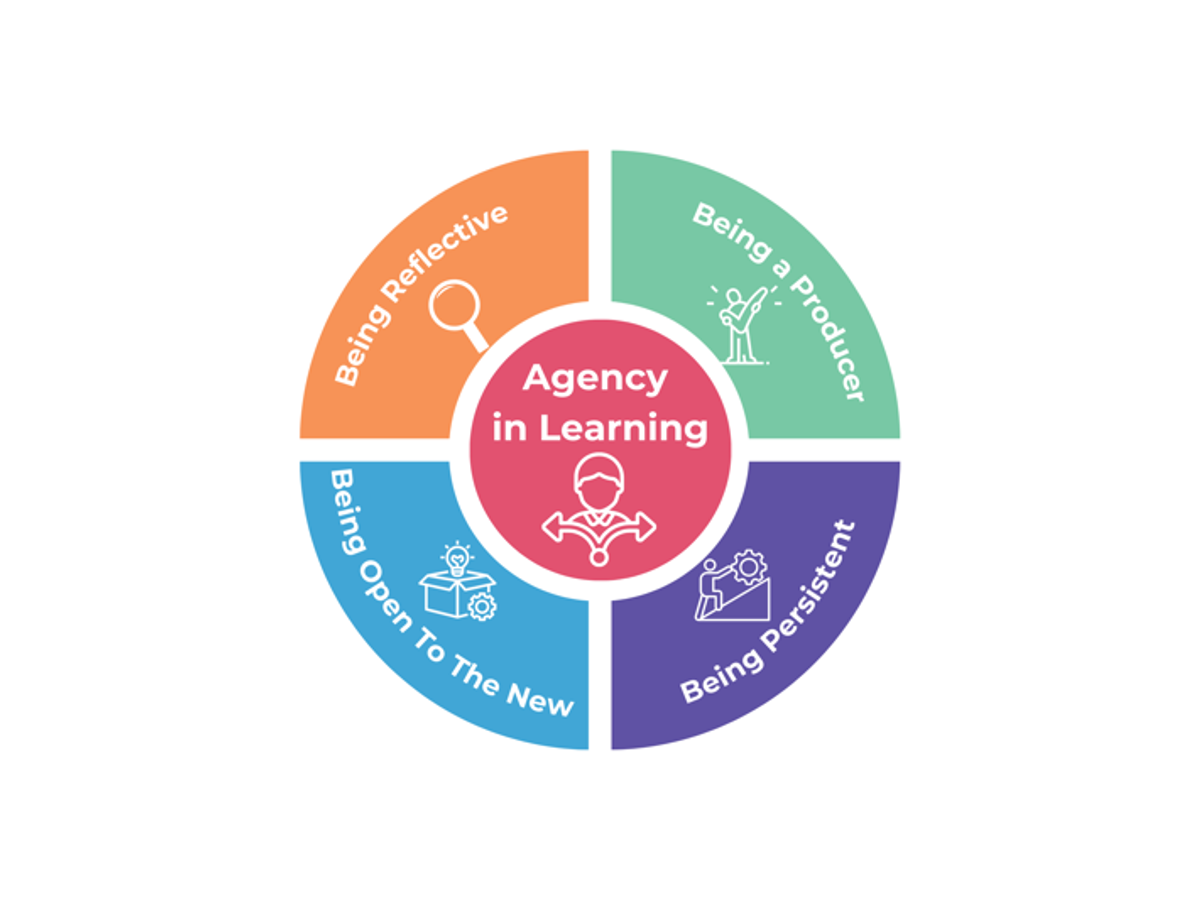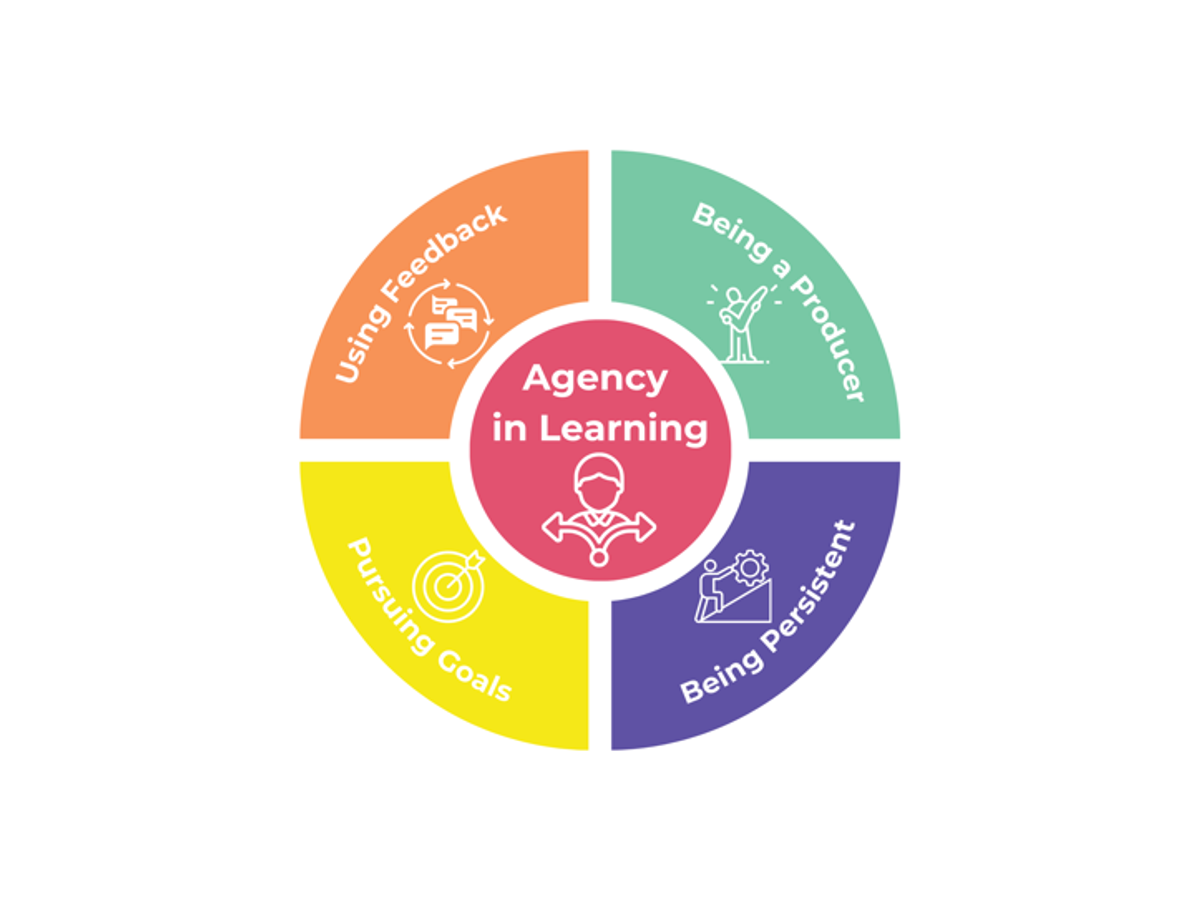Shifting towards agency in learning

At Heathmont College, we are excited to introduce a new approach to progress reports, focusing on Agency in Learning. This shift represents more than just an update, it is a holistic transformation in how we assess and support students.
Our goal is to capture more than just academic performance. The new progress reports will evaluate students’ ability to take ownership of their learning, collaborate effectively, communicate clearly, and develop high-quality thinking skills, all essential for success in further study, work, and life beyond school. This means that agency is not just an academic skill, it is a life skill, supporting students to become adaptable, independent learners in a rapidly changing world.
Importantly, these agentic methods of assessment do not replace traditional academic learning. Instead, they provide a broader and deeper understanding of student development, recognising the whole learner and preparing them with skills that extend beyond the classroom.
Why the Change?
Recent feedback from students and families has reinforced a desire for deeper, more meaningful assessments. Students want clearer insights into their learning, more actionable feedback, and an understanding of how they are progressing beyond traditional academic measures.
To ensure we developed an approach that is rigorous and research-informed, members of our leadership team participated in a six-month professional development program in 2024 through the Victorian Academy of Teaching and Leadership, in partnership with The University of Melbourne. This program built our capacity as educators and informed the development of this next step for the college, ensuring we align with best practices in education and assessment.
This shift also reflects Melbourne University’s Complex Competencies framework, which highlights the importance of transferable skills that prepare students for life beyond school. While our previous progress reports have served us well, adopting these next-generation assessments ensures that our students are developing the skills necessary for future success.
What is Agency in Learning?
It is defined as by The University of Melbourne as: ‘Knowing what to learn, how to learn it, and who to learn it from.’
Agency in Learning is one of the Complex Competencies outlined by The University of Melbourne. Complex Competencies are:✅ Teachable, learnable, observable, and assessable✅ Developed inside and outside formal education✅ Transferable across different contexts
What’s Different in the New Progress Reports?
Starting this term, students in Junior and Senior School will be assessed on specific aspects of learner agency, tailored to their stage of development.
Junior School (Years 7-9) will be assessed on:
- Being a Producer – The ability to produce things (performances, materials, products, works, experiments, designs) to develop knowledge or skill.
- Being Persistent – The ability to be tenacious and determined in pursuit of a goal.
- Being Open to the New – The ability to embrace new ideas, experiences and ways of doing things.
- Being Reflective – The ability to evaluate actions or thoughts for improvements.
Senior School (Years 10-12) will be assessed on:
- Being a Producer – The ability to produce things (performances, materials, products, works, experiments, designs) to develop knowledge or skill.
- Being Persistent – The ability to be tenacious and determined in pursuit of a goal.
- Pursuing Goals – The ability to commit to social, personal or community goals.
- Using Feedback – The ability to seek feedback for improved performance.
What’s Next?
Students have already been introduced to these Elements of Agency in Learning through their classes and can expect to hear this new vocabulary in lessons more frequently.
As we approach progress reports in Week 7, students will complete their own learner reflections, giving them the opportunity to assess their growth and understanding of these key skills.
Staff will be encouraged to use these student reflections to guide discussions with families during Parent-Teacher Interviews in the final week of term, helping to create a shared understanding of each student’s progress and next steps. We look forward to partnering with families to support this change and welcome any feedback as we continue refining our approach to student learning.


